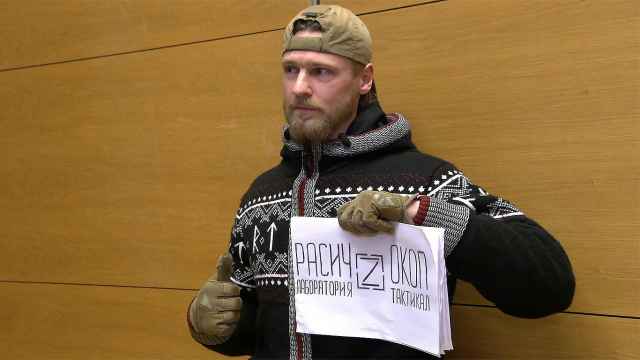WASHINGTON — The White House faces a major challenge next year persuading the U.S. Congress to permanently normalize trade relations with Russia due to concerns about human rights and Moscow's relations with Iran, a senior Republican lawmaker said Tuesday.
"I've counted a lot of trade votes in my time in Congress. This will be a hard lift," Representative Kevin Brady said in a speech to the Washington International Trade Association. "Even among our pro-trade members there is skepticism about Russia."
Members of the World Trade Organization meeting later this week in Geneva are expected to approve Russia's entry into the world trade body after nearly 18 years of negotiations.
That would require the United States to establish permanent normal trade relations (PNTR) by revoking a Cold War provision known as the Jackson-Vanik amendment that tied U.S. trade relations with state-controlled economies to the rights of religious minorities to emigrate freely.
Brady, who chairs the House of Representatives Ways and Means subcommittee on trade, said it was possible Congress could vote on PNTR for Russia in the first half of 2012, provided that the White House lays the ground for a vote.
Unless Congress revokes the provision, trade experts say Russia would be entitled under WTO rules to deny the United States most or all of the market-opening concessions Moscow made to join the WTO. That would put U.S. companies at disadvantage in the Russian market to other suppliers.
Brady said it is "important for the Obama administration, for our private sector, business and agriculture, and the Russian government to educate Congress, to build a foundation as to why Russia's WTO accession is in our interest, in both countries' interest, so that we can get beyond the general distrust that members of Congress feel today."
He compared the upcoming vote on Russia to the bitter debate in 2000 over China's accession to the WTO. Congress approved PNTR for China but only after a major push by the administration of President Bill Clinton.
Members of Congress will use the PNTR debate to raise concerns on a number of issues "related to Russia, even if they are not related to trade, such as human rights, foreign and security policy and Iran," Brady said.
But he said he was not willing yet to endorse the need to create some kind of mechanism within the PNTR legislation to put pressure on Russia over human rights and other issues.
Instead, Brady said, he wants to focus on why it is important for Congress to remove Jackson-Vanik.
He urged Russia to improve the environment for votes in the House and the Senate by taking action on longstanding trade irritants, such as barriers to its agricultural markets.
"We need to build confidence in Congress concerning Russia's willingness to live up its new WTO commitments in areas such as ag. trade," Brady said. "Congress must also be confident that Russia is sufficiently addressing other trade concerns, like IPR [intellectual property rights] enforcement related to the Internet."
A Message from The Moscow Times:
Dear readers,
We are facing unprecedented challenges. Russia's Prosecutor General's Office has designated The Moscow Times as an "undesirable" organization, criminalizing our work and putting our staff at risk of prosecution. This follows our earlier unjust labeling as a "foreign agent."
These actions are direct attempts to silence independent journalism in Russia. The authorities claim our work "discredits the decisions of the Russian leadership." We see things differently: we strive to provide accurate, unbiased reporting on Russia.
We, the journalists of The Moscow Times, refuse to be silenced. But to continue our work, we need your help.
Your support, no matter how small, makes a world of difference. If you can, please support us monthly starting from just $2. It's quick to set up, and every contribution makes a significant impact.
By supporting The Moscow Times, you're defending open, independent journalism in the face of repression. Thank you for standing with us.
Remind me later.





